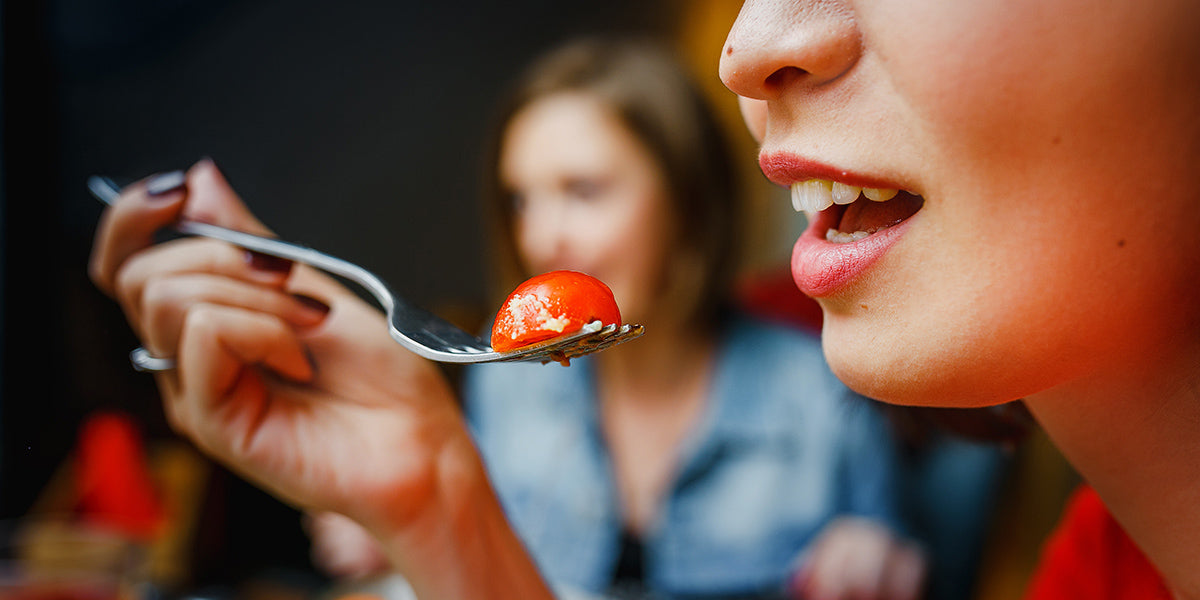
How To Train Your Taste Buds
Dr. David Katz says it best: “When your taste buds can't be with foods they love, they learn to love the foods they're with.”
Quite plainly, our taste buds exist to protect our lives. In other words, when we eat food or drink a beverage, our taste buds are our first line of defense to distinguish what is recognizable (safe) from what is unrecognizable (potentially unsafe). If you’ve ever tried to feed a child a new food, then you’ve seen this response up close. You’ve likely also noticed that kids can learn to love new foods if they are exposed to them more than once. If you stick with it, kids often like a new food a little more and more each time it is put in front of them.

Your taste buds can be trained
In addition to gravitating toward familiar foods, our taste buds tend to prefer things that are sweet, salty, and high in starch and/or fat. Your taste buds know that, in the past, foods with these qualities have provided a pleasurable and safe experience. Today’s food scientists are acutely aware of this, too, which is why they are hired to formulate foods that our taste buds will accept upon first taste.
So what’s the problem here? Well, it turns out many of today’s manufactured foods have added the sweet, salty, starchy, and fatty components in such copious amounts, that these highly processed foods—especially when consumed often and in high quantities—are not good for our health. These same qualities tend to show up in foods that contain inflammatory low-quality sweeteners and oils, as well as harmful trans fats (aka: junk food). The other down side to this? The more junk foods we eat that are extremely high in sugar, salt, starch, and fat, the more our taste buds prefer them. You can see how an unhealthy pattern emerges.
Try this experiment to train your taste buds
Just as your taste buds can learn to crave junkier food, you can put them through rehab. Thus, re-teaching them to become more sensitive to extreme additions of sugar, sodium, processed starches, and poor-quality fats.
Give yourself 10 days. Research shows that taste bud cells undergo continual turnover, even through adulthood, and their average lifespan has been estimated as approximately 10 days.
Start with cutting out foods with added sugar for 10 days, and when you taste them again on the 11th day, you’ll be quite shocked at how much sweeter they taste to you than they ever did before. Now try this again by cutting out foods with a lot of added salt for 10 days. On the 11th day, give that salty snack a try and you’ll be gobsmacked at just how salty it tastes to you.

Put your protective taste buds to work for you and expose them over and over to more healthful choices. For example, show them what natural and high-quality fats from olive oil and avocados taste like; teach them what natural sweetness from a banana or sugar snap peas taste like; introduce them to the nuanced flavors of roasted Brussels sprouts and sauteed bell peppers; and of course, let them know what a veggie-filled, no-sugar-added pasta sauce should taste like.
Again, Dr. Katz says it so well in his article The Case for Taste Bud Rehab: “Food is a source of great pleasure, and should be exactly that. But vitality is at least as great a source of pleasure, and should be exactly that. We should not need to mortgage either to pay for the other.” If your taste buds are too often shunning what’s good for you, perhaps it’s time for a little rehab.


